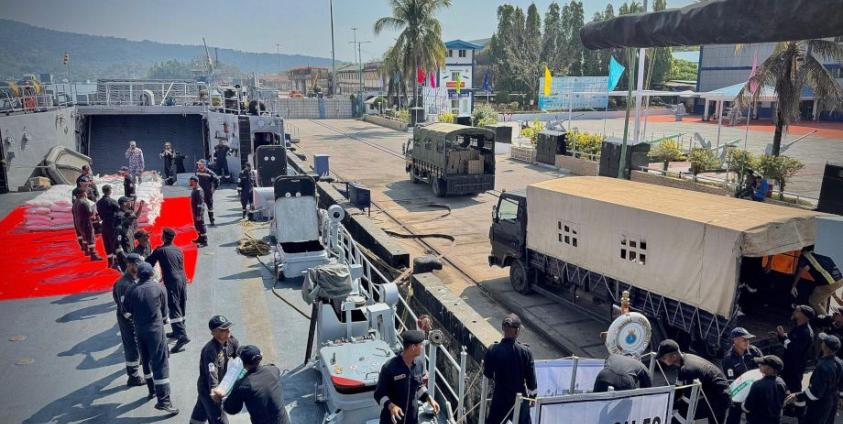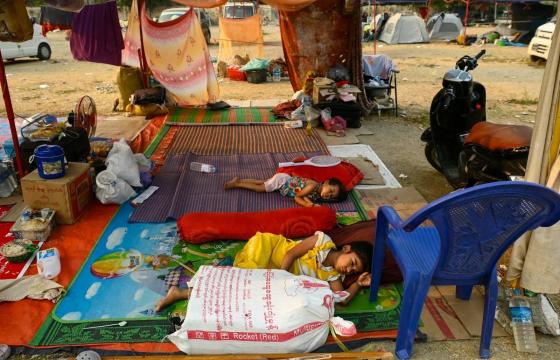In the wake of Myanmar’s latest natural disaster – a devastating 7.7-magnitude earthquake on 28 March – hope should come in the form of humanitarian relief. Instead, aid has become the latest casualty of a brutal political strategy orchestrated by the country’s military junta.
According to a damning new report titled Aid Under Attack by the Ministry of Information of the National Unity Government (NUG) the junta has systematically transformed disaster relief into a political tool. Since seizing power in 2021, the military has blocked, delayed, and manipulated humanitarian aid to serve its own interests. Using bureaucracy as a weapon, relief is selectively distributing to loyalist areas, while international aid is rebranded as state generosity.
“Access is not governed by need, but by politics,” the report states.
Entire communities – especially those in resistance-controlled and ethnic minority areas – are punished by the denial of life-saving assistance.
After Cyclone Mocha in 2023, aid was withheld from Rohingya villages while military zones received expedited assistance. The pattern has intensified in 2025. International aid convoys have been shelled travelling to disaster zones. At the same time, aid workers face surveillance, harassment, and even attacks.
Aid agencies are left with a painful choice: comply with the junta’s demands and risk complicity or push back and risk expulsion. International organizations, including the UN, face immense pressure to navigate this impossible landscape, often with limited transparency or oversight.
“This isn’t just obstruction, it’s calculated repression,” said one Southeast Asia analyst quoted in the report.
Civil society groups and diaspora voices are now urging the global community to rethink its approach. The report calls for bypassing the junta entirely, enabling independent cross-border aid, and empowering local networks that have quietly become the backbone of Myanmar’s survival.
The crisis, as the report puts it, is no longer just about resources, it’s about access, ethics, and the urgent need to protect humanitarian principles from political abuse.








